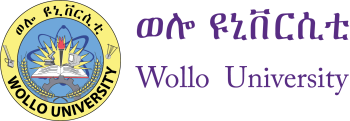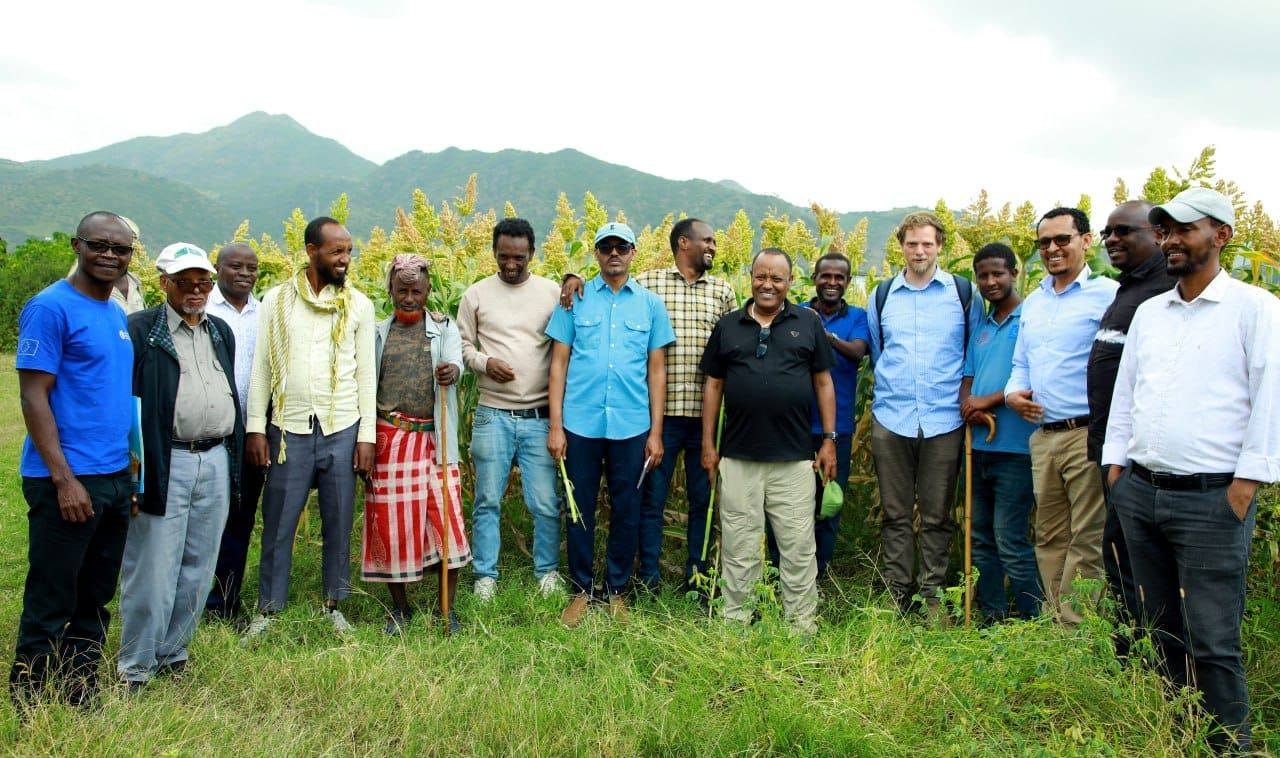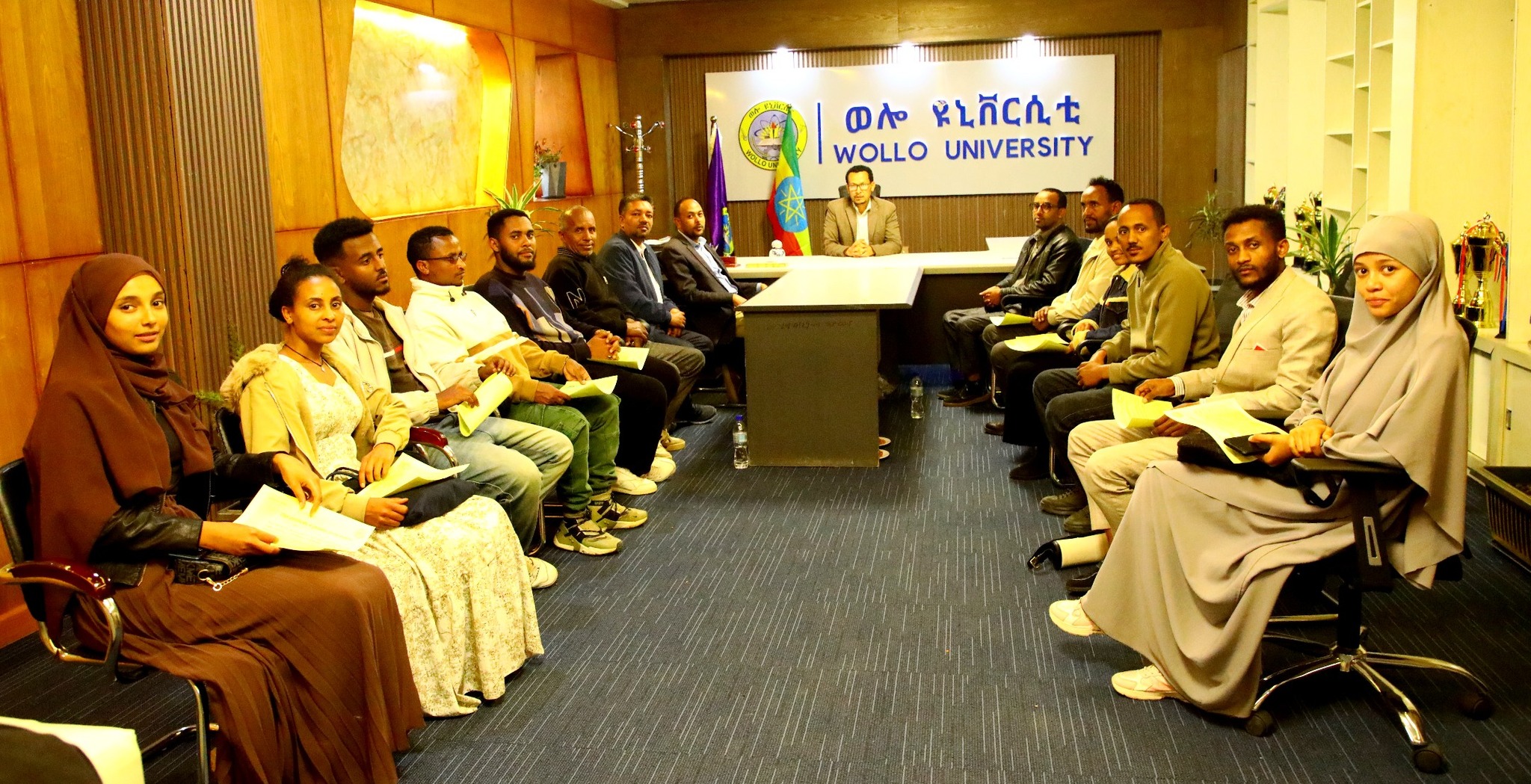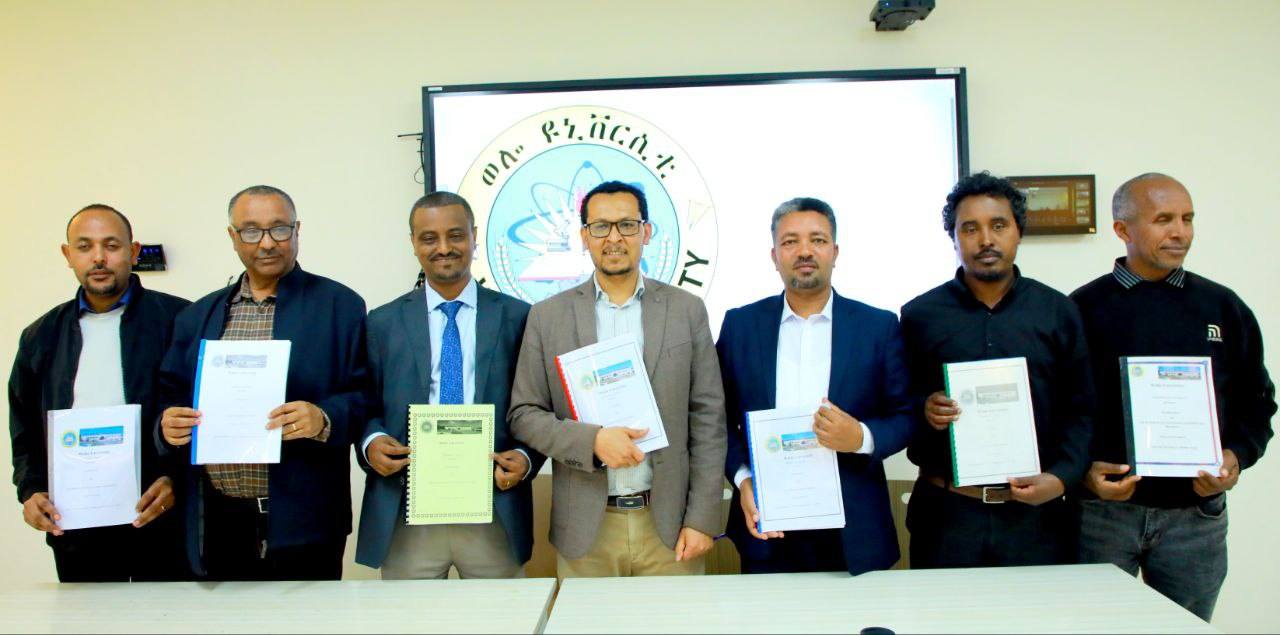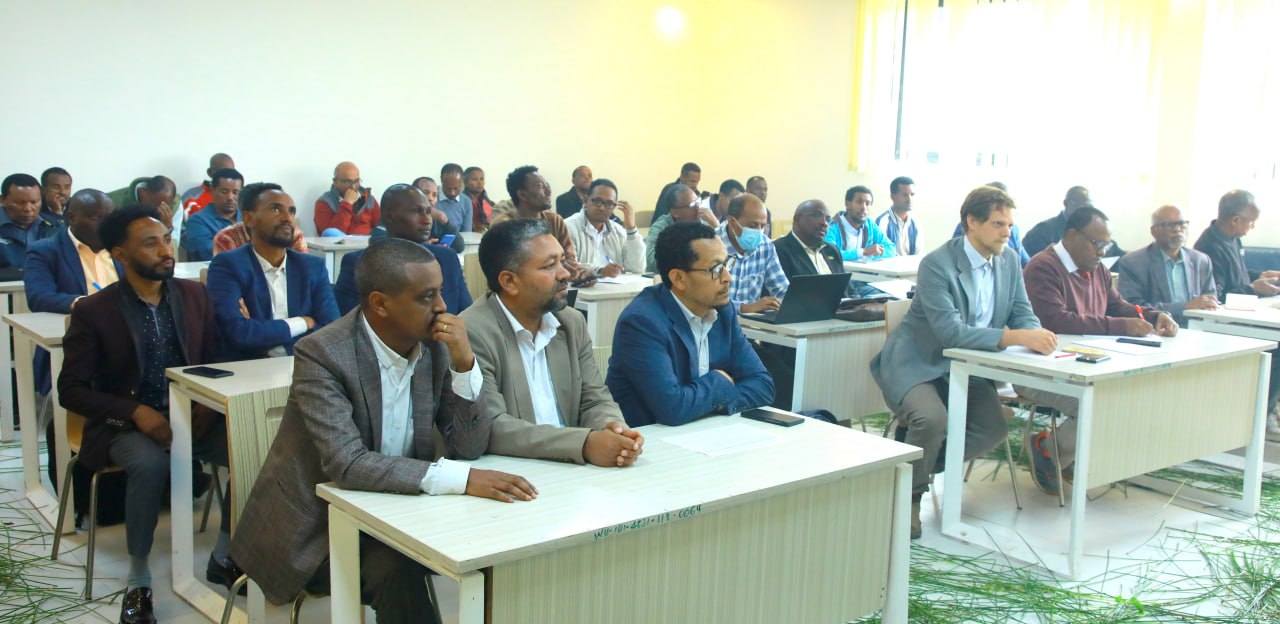Wollo University organized a high-level field visit to the sorghum and maize intercropping fields in Bedeno Kebele, Dawa Chefa Woreda, as part of an ongoing Kenyan–Ethiopian exchange program promoting regenerative agriculture and indigenous knowledge integration.
The visit formed a key activity under two collaborative research initiatives, the Ethiopian Traditional Grain Mixtures Project (TGMP) and the Regenerative Mixed Cropping for Schools (ReMiCS), both led by Dr. Alex C. McAlvay, Principal Investigator from the New York Botanical Garden (NYBG), USA.
On the Ethiopian side, the TGMP project engages a strong multidisciplinary team, including Dr. Endale Amare from the Ethiopian Public Health Institute, Prof. Zemede Asfaw of Addis Ababa University, an internationally renowned expert in ethnobotany and traditional knowledge, and Dr. Asmare Dejen and Mr. Seid Hassen from Wollo University, who specialize in agriculture and agroecology.
From Kenya, the ReMiCS project team comprises experts in food composition and nutrition, such as George Ooko from the University of Nairobi and Xavier Cheseto from ICIPE, as well as Oswald Miriti, Josphat Musenze, and Moses Mwanje from the Cereal Growers Association, who focus on agriculture and agroecology.
The joint field visit facilitated a meaningful exchange of experiences between the Kenyan and Ethiopian research teams. Participants explored how indigenous agricultural practices, particularly mixed cropping and seed preservation can be enhanced through scientific inquiry and collaborative innovation.
The delegation observed farmers’ plots where five sorghum varieties were cultivated together with maize in an intercropped system. Farmers explained that this longstanding traditional practice prevents land degradation by maintaining continuous soil cover, while the early-maturing maize helps bridge the seasonal food gap that often occurs between August and October.
They further noted that mixed-cropping enhances crop growth and yield performance. In addition, the farmers shared their methods of seed selection and preservation, demonstrating how traditional storage practices protect seeds from pest damage and ensure availability for subsequent planting seasons.
The visiting researchers expressed their admiration for the farmers’ indigenous expertise, recognizing their resilient and sustainable farming systems as critical for biodiversity conservation and climate adaptation. They underscored that native crop varieties possess inherent resistance to pests and diseases, and that indigenous knowledge plays a crucial role in maintaining these genetic resources.
The visiting teams emphasized that scientific research should build upon, rather than replace, these community-based practices ensuring that findings are co-developed with and applied by local farmers to enhance livelihoods and food security.
In his concluding remarks, Dr. Awol Seid, President of Wollo University, reaffirmed the university’s commitment to addressing community challenges through research-driven agricultural innovation. He expressed his gratitude to Dr. Alex C. McAlvay from USA and the collaborating partners from Ethiopia and Kenya for their dedication to knowledge sharing and collective action toward food system resilience. Dr. Awol concluded with the message, “It is indigenous knowledge that guides science,” emphasizing that Wollo University will continue to bridge traditional wisdom and modern science to advance sustainable and inclusive agricultural transformation in Ethiopia and beyond.
